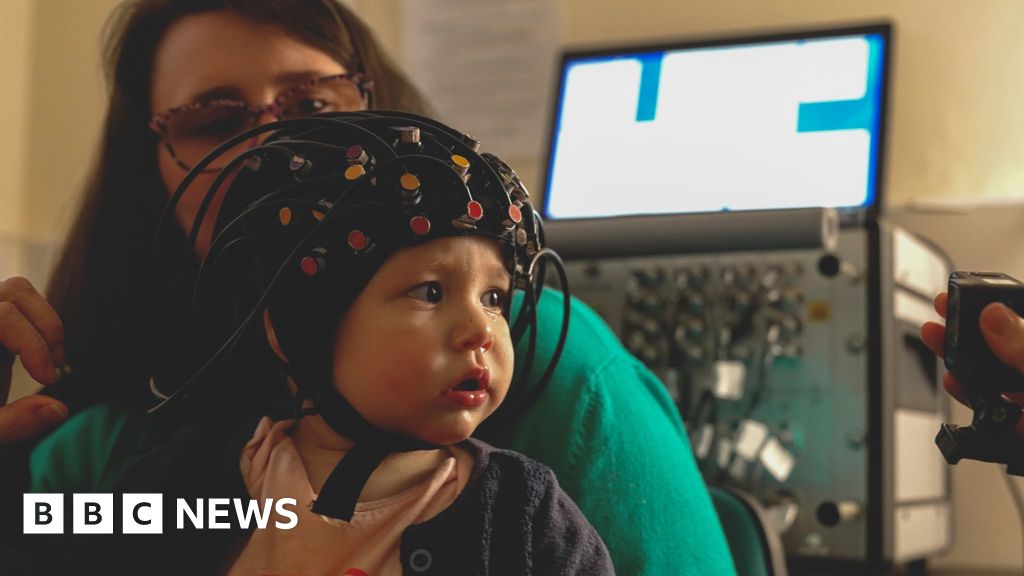Here is the plain text result:
Two-year-old Henry is completely transfixed by the iPad in front of him. Every time a smiley face appears, he taps the screen, and his tap transforms the face into a cartoon of a dancing animal. It looks like a simple, repetitive game, but is actually a test of a fundamental skill that is developing in the toddler’s growing brain.
It is a test of inhibitory control, one of the skills scientists at the University of Bristol are measuring in babies and toddlers, as part of a mission to understand how and when very young children develop abilities that enable them to focus and learn.
Parents of the children being studied are also part of a project that has monitored their health since they too were babies, in the 1990s. The study will also assess language development and processing speed, a measure of how quickly children pick up new information.
The Children of the 90s project is now 35 years old. Focused primarily on health, by tracking 14,500 children born between 1991 and 1992, it has revealed insights into obesity, autism and, more recently, the effect of the pandemic on mental health.
The project’s data has been made available to scientists around the world and has been cited in thousands of scientific papers. One study of the diets of children of the 90s provided evidence that, while a child’s fussy eating is often worrying, it is unlikely to have any lasting impact on their health and development.
Thanks to repeated health-screenings that have been key to the project, it also revealed that one in five young people shows signs of fatty liver disease, and one in 40 young people may have liver scarring – caused largely by obesity and alcohol consumption. This has shown just how common the condition is and provided insights into ways it can be prevented through diet.
In this latest study – of the children of the children of the 90s – scientists are looking specifically at formative abilities and brain development. They will follow each child until they start school.
Helping children to thrive in the future is the aim, Dr Holmboe says. Because when children start school, she explains “a lot of things are already set. This is the groundwork that will help us support children at the right time.”
Source link




